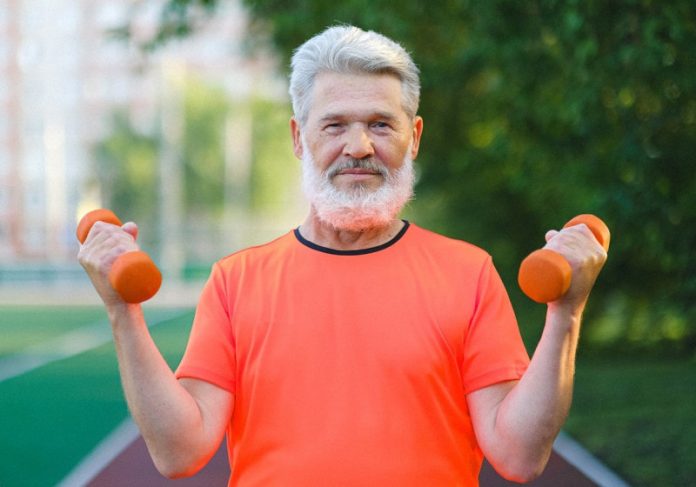If you frequently run a marathon or do heavy aerobic exercise, you may be pleasantly surprised.
A study by a team from the Federal University of São Paulo in Brazil suggests that training not only improves balance and posture but could also slow the progression of Alzheimer’s disease.1
Alzheimer’s disease
Alzheimer’s disease is one of the most common neurological diseases among older people. This chronic and irreversible disease is manifested by gradual deterioration in the cognitive functions of the brain, making it one of the hardest to cope with.2
For many patients, the disease affects not only their cognitive functions but also their daily activities and ability to take care of themselves. Eventually, this condition causes 60-70% of all cases of dementia worldwide.2
Most drugs for the treatment of Alzheimer’s disease can only temporarily improve the symptoms of memory loss and problems with thinking and reasoning.
These drugs increase the efficiency of chemicals in the brain that relay information from one brain cell to another. They, however, do not stop the process of brain cell destruction.
As more cells die, the disease continues to progress.2
Scientists, therefore, have high hopes for the introduction of treatments or preventative measures that can stop or slow the progression of Alzheimer’s disease.
Mighty mice
Strength training, also known as resistance training, is a physical activity designed to improve muscle strength and fitness.
The main principle is to apply a load and overload the muscles so that they adapt and become stronger. This training helps to build and tone muscles, increase bone density, and improve overall strength and endurance.3
There are many different types of strength exercises, for example, bodyweight exercises, weightlifting, resistance band workouts, and machine-based exercises. Each of these exercises targets specific muscle groups, allowing for a well-rounded and balanced workout.3
The researchers trained genetically engineered mice, predisposed to developing symptoms similar to those of Alzheimer’s disease, to climb stairs, mimicking resistance training. They attached weights equivalent to 75%, 90%, and 100% of their body weight to mice and exercised them for four weeks.1
Exercise reduced Alzheimer’s brain changes
When the scientists looked at the strength-trained mice’s brains, they found fewer beta-amyloid plaques. These plaques are an important marker of Alzheimer’s disease.
Next, the scientists examined blood samples from the mice. They focused on levels of corticosterone, the human-mouse equivalent of the stress hormone cortisol. Cortisol can increase the risk of Alzheimer’s disease when levels rise due to stress.
In resistance-trained mice, corticosterone levels were normal, while in untrained mice, a significant elevation of this hormone was noted. Accordingly, trained mice were less likely to avoid the most stressful places in the environment, indicating a decrease in anxiety levels.1
Taken together, this supports the idea that physical activity can reverse the changes in the brain that lead to Alzheimer’s symptoms.1
Bottom line
This research suggests that resistance training may be an effective strategy to prevent or delay symptoms of Alzheimer’s disease. This could be due to the anti-inflammatory effect of exercise, although more research is needed to explore this hypothesis.1
Although the results of the study are preliminary and require investigation in humans, this is a promising step forward. The findings could pave the way for the development of affordable strategies, such as exercise programs, to reduce the prevalence of Alzheimer’s disease.1
So the next time you’re contemplating whether or not to go to the gym, remember that it can be not only a physical but also a mental workout that lays the foundation for a healthy old age.
Don’t forget to consult your physician to choose the best regimen for you.
References
- Henrique Correia Campos, Deidiane Elisa Ribeiro, Hashiguchi D, et al. Neuroprotective effects of resistance physical exercise on the APP/PS1 mouse model of Alzheimer’s disease. Front Neurosci. 2023;17:1132825. doi:https://doi.org/10.3389/fnins.2023.1132825
- World Health Organization. Dementia. World Health Organization. Published March 15, 2023. https://www.who.int/news-room/fact-sheets/detail/dementia
- Here’s Everything You Need to Know to Start Weight Lifting. Verywell Fit. https://www.verywellfit.com/weight-training-fundamentals-a-concise-guide-3498525#:~:text=Weight%20training%20is%20an%20organized



